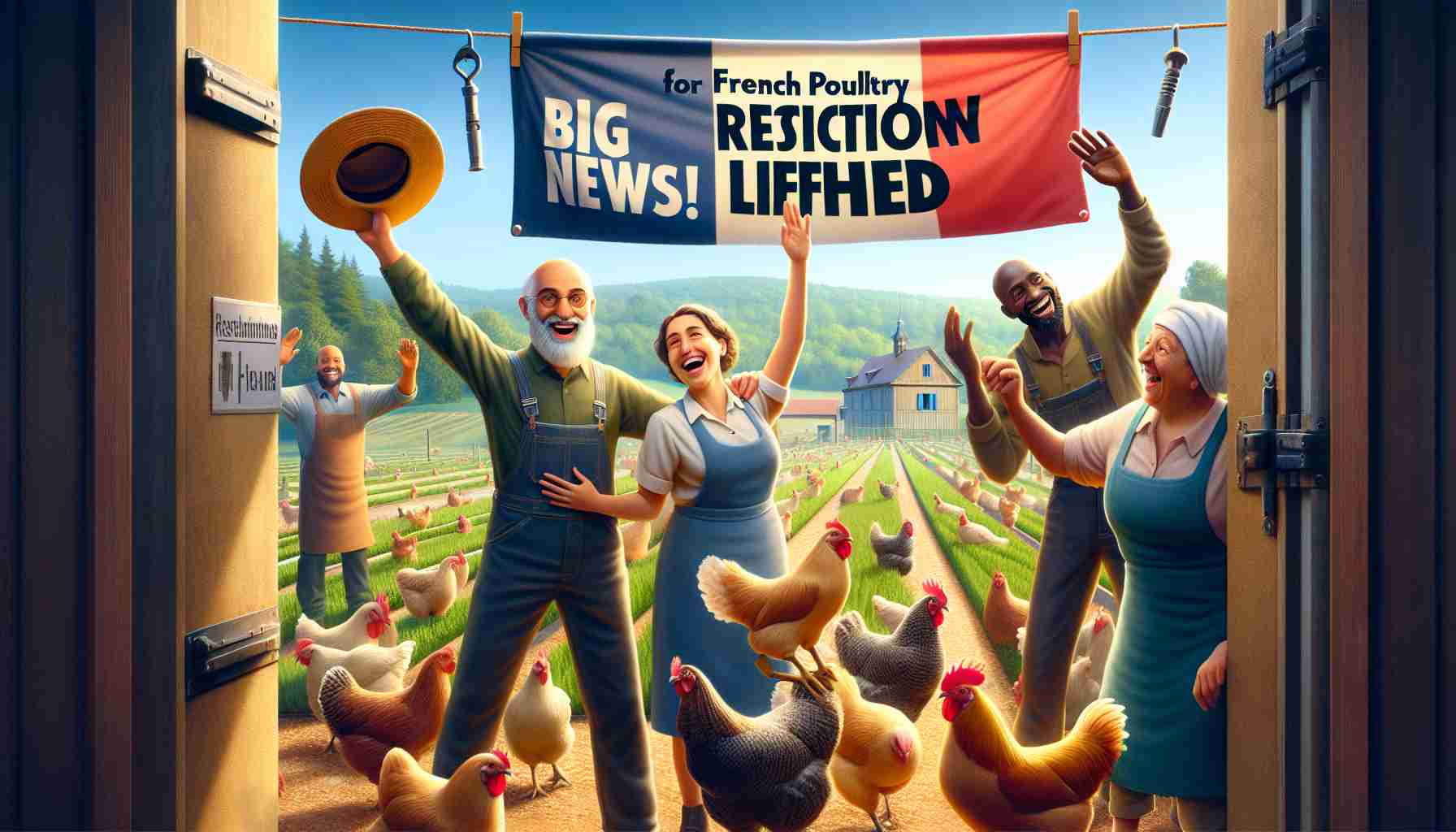In a significant development for the French poultry industry, the United States and Canada have officially lifted bans on certain imports of French poultry products. This decision follows extensive negotiations between French authorities and their American and Canadian counterparts regarding the safety of vaccinations against highly pathogenic avian influenza (HPAI).
The French Ministry of Agriculture reported that the lifting of these import restrictions is a key victory in combating the spread of avian influenza, a viral disease that has severely impacted poultry farms in recent years. With outbreaks affecting both France and the U.S., the disease has also been reported to affect dairy cows and agricultural workers.
In an effort to curb the disease’s spread, France initiated a nationwide vaccination campaign for ducks in October 2023, becoming the first major poultry exporter to do so. Despite some international concerns about the potential risk posed by vaccinated birds, French officials have successfully assured their U.S. and Canadian counterparts of the vaccination’s efficacy.
As a result of these negotiations, U.S. officials have lifted restrictions on both vaccinated and unvaccinated poultry imports from France and other European Union member states. Currently, French health authorities are coordinating with their American and Canadian counterparts to resume exports of avian genetic material, like hatching eggs and day-old chicks. While overall poultry exports from France to these countries have been limited, there is a notable demand for avian genetics.
Global Implications of Lifting Poultry Import Bans
The lifting of import bans on French poultry products by the United States and Canada signifies more than just a localized victory; it reflects broader implications for global trade dynamics, particularly in the agricultural sector. As France emerges as a leader in avian influenza vaccination, this decision may set a precedent that encourages other poultry-exporting nations to adopt similar measures, reshaping international poultry markets.
This revival is not merely an economic boon but carries potential cultural ramifications as well. The ability to export poultry products reconnects French producers with global consumers, fostering a renewed appreciation for French gourmet poultry, which could enhance culinary exchange and support local traditions. More importantly, it emphasizes a proactive approach to food safety, which is becoming an essential criterion for international trade as consumers increasingly demand transparency and reliability in food sources.
Environmentally, the vaccination initiatives can mitigate the need for culling infected flocks, thereby reducing waste and associated resource depletion. Long-term, the global trend towards vaccination could inspire similar strategies in combating other zoonotic diseases, leading to a more resilient agricultural sector. As nations grapple with impending climate challenges, innovative approaches like vaccination may emerge as pivotal tools for ensuring food security and sustainability on a global scale.
Thus, the implications of this decision extend far beyond poultry exports, potentially influencing agricultural practices, consumer culture, and environmental policies worldwide.
French Poultry Industry Receives Boost with Lifted Import Bans from U.S. and Canada
The French poultry industry is experiencing a pivotal moment as the United States and Canada have lifted bans on specific imports of French poultry products. This decision, resulting from thorough negotiations regarding the safety of vaccination protocols against highly pathogenic avian influenza (HPAI), marks a transformative step towards revitalizing the French poultry market.
Overview of the Situation
In recent years, the poultry sector has been grappling with significant challenges due to outbreaks of avian influenza, which not only affects birds but has also been reported in dairy cows and agricultural workers. The French Ministry of Agriculture considers the lifting of these import restrictions a vital victory in mitigating the risks posed by the disease.
Key Features of the Agreement
1. Vaccination Initiatives: France has launched a nationwide vaccination campaign aimed primarily at ducks, making it the first major poultry exporter to implement such a strategy in October 2023. This proactive measure highlights France’s commitment to controlling the outbreak of avian influenza.
2. Negotiation Success: French officials have effectively addressed international concerns regarding the risks associated with vaccinated birds, assuring their U.S. and Canadian counterparts of the vaccine’s effectiveness and safety.
3. Import Regulations Updated: With the restrictions lifted, both vaccinated and unvaccinated poultry imports from France and other EU member states are now permitted. This is expected to significantly boost export opportunities.
Use Cases and Opportunities
The resumption of exports will particularly focus on avian genetic materials, including hatching eggs and day-old chicks. There is a robust demand for these products, and French health authorities are actively working with U.S. and Canadian officials to facilitate the logistics of these exports.
Pros and Cons of the Lifting of Import Bans
Pros:
– Increased Market Access: French poultry producers can once again access vital North American markets.
– Economic Recovery: Easing of restrictions may help revive the struggling French poultry industry, providing a much-needed economic boost.
– Enhanced Biosecurity: The vaccination initiative may mitigate future risks of avian influenza, benefiting both farmers and consumers.
Cons:
– Public Perception: There might still be skepticism among consumers regarding the safety of vaccinated poultry products.
– Market Competition: Increased exports could flood the market, leading to potential price competition among poultry exporters.
Insights and Future Trends
As the poultry industry evolves, the adoption of vaccination strategies could become standard practice in combating avian diseases. Additionally, the global demand for poultry and related genetic materials shows a trend towards sustainable practices, emphasizing the need for biosecurity measures in agricultural production.
Challenges Ahead
While these new developments are promising, the French poultry industry must navigate potential challenges, including ensuring consumer confidence in vaccinated products and maintaining rigorous screening processes for imported poultry.
Conclusion
The recent lifting of poultry import bans by the U.S. and Canada is not only a win for France but may also signify a new chapter in the poultry industry’s approach to disease management. With ongoing collaborations and innovative vaccination initiatives, the future looks bright for French poultry exports.
For additional insights and updates on the poultry industry, visit FranceAgriMer.
